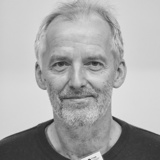
SPATAIS - Sorting plastic and textiles using AI driven sensing solutions
Project Period: July 2022 – December 2024
Project Status: Finished Pool: Trace Pool 1
Lead: University of Southern Denmark
The goal of this project is to design a system that is capable of efficient sorting of plastic and textiles with different degrees of contamination.
The system will hence allow plastic and textiles on the same sorting line.
There are basically two unmet needs: The existing AI systems are insufficient for sorting, and textiles are infeasible to handle with conventionaltechnologies such as air jets. Commercial solutions for systems for sorting plastic already exist. However, these are closed solutions (no access for externals to improve them) and with an insufficient functionality.
The improved sorting quality will allow to increase the amount of material that can be recycled.
The ability to sort mixed plastic and textiles will allow for a joint collection system (plastic and textiles forming one fraction). This will beside the savings in infrastructure (bin, collection vehicles) also lead to a reduction in transportation needs.
Designing a competitive system here will lead to the possibility of entering the market which means production of such a system, in Denmark, will lead to increased employment. This is a long-term goal.
Project partners: University of Southern Denmark, Marius Pedersen and Aris Robotics ApS.
Project Results
The SPATAIS project aimed to develop an advanced system for sorting plastic waste using AI-driven sensing solutions. Over the project period from July 2022 to December 2024, the team successfully integrated AI systems for object detection, localization, classification, and segmentation with a newly developed AI system for grasping objects.
Key achievements include:
- Development of a prototype system capable of sorting plastic waste.
- Integration of 2D segmentation with 3D sensors to enhance object identification and sorting accuracy.
- Investigation of various grippers to determine the most effective for waste sorting.
- Successful testing of the system on 13 representative plastic objects, achieving a 91% success rate for graspable objects.
The project contributed significantly to the Trace roadmap by improving the identification, documentation, and sorting of waste materials. The developed system has the potential to produce cleaner fractions of sorted material, thereby increasing recycling rates and reducing the amount of waste that needs to be downcycled or disposed of.
Future work will focus on addressing practical concerns for real-world deployment, including handling contaminated objects and deploying multiple robots with different gripping tools.
Overall, the SPATAIS project has laid a strong foundation for future advancements in waste sorting technology, with promising implications for environmental sustainability and economic opportunities.
Project Leader

Henrik Gordon Petersen
Mail: hgp@mmmi.sdu.dk
Other Common Projects




